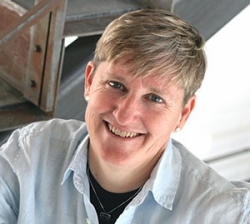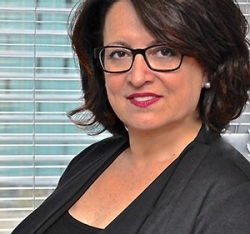Nicki Monahan, who graduated from the PPCC in 2017, and who has now completed the Journey to Mastery program, was led towards coaching primarily through one defining experience. Working in faculty development, she was asked by a senior dean to work with a faculty member who was struggling with his job. “He really needed a good coach, and even though I had good teaching skills and facilitation skills and counselling skills, I didn’t have coaching skills,” she says.
Blog post
Coach Certification: As Much a Personal Journey as a Professional One

I felt there was more to me than the managing hat I was wearing.
“I was often told by my employees that I wouldn’t just give them the answer,” says Rita Dolzan, recounting how it was she came to consider pursuing coaching. “I felt there was more to me than the managing hat I was wearing.” Dolzan completed the Professional and Personal Coach Certification in 2018, and is now in the process of completing the second module, Journey to Mastery, as of June 2019.
 Nicki Monahan
Nicki Monahan
There’s an internal work that is significant in order to be of service to someone else. I wasn’t expecting that transformation.
While the forces that brought these two women to the program may have been different, their situations share one big similarity: both Dolzan and Monahan saw an opportunity and took it. The path that brought them both to the Concordia Coach Certification Program was ultimately a personal one guided by learning new skills and improving the way they navigated their current jobs. What neither of them realized at the time was that it would turn out to be so much more.
 Rita Dolzan
Rita Dolzan
“I did have some understanding, but I did not expect this.” Dolzan says, explaining that in addition to becoming a coach practitioner and a professional in the field, the coaching program also changes the people who take it. “There’s an internal work that is significant in order to be of service to someone else. I wasn’t expecting that transformation.”
In coaching, although the skills and methods can be learned, the main tool required for coaching is the coach herself. Monahan says the Concordia Coaching Program is holistic, working on all aspects, including the personal. “It really is a program where you need to not just think about theory and skills, but you need to think about who you are and who you bring into the coaching experience, because as a coach the work that you do is really based on who you are and how present you can be in the moment”
I was really drawn to Concordia’s program because we were actually doing coaching, not just reading about coaching or thinking about coaching or talking about coaching.
Concordia was among the first universities in Canada to begin offering certified coach training programs with the coach certification program beginning more than a decade ago. The bulk of coach certification programs are offered through private companies or individuals, and a significant number of them are offered online. Moreover, they are neither academically grounded nor evidence-based. “How do you learn something that’s really skills based, and interpersonal skills based completely online?” Monahan says. It’s part of what led her to choose Concordia over other available coach certification programs. “I was really drawn to Concordia’s program because we were actually doing coaching, not just reading about coaching or thinking about coaching or talking about coaching.”
Although coaching is still an unregulated profession, organizations like the International Coach Federation (ICF) have laid out some solid guidelines to encourage consistency in the coaching practice. The ICF has different levels of certification available, which coaches are eligible for based primarily on the number of training hours and coaching hours they have completed. Those who complete the PPCC are eligible for ACC-level accreditation, and the Journey to Mastery provides the training hours required for a PCC-level accreditation, although coaches are still responsible for ensuring they have the necessary coaching hours before they can apply for this level of accreditation.
I’m completely excited because I love the job that I do right now, but I have this other coaching part of me that means I have something else to move into that really excites me, that uses skills that I’ve developed.
While it is mandatory to have the PPCC or an equivalent program in order to take the Journey to Mastery, it is not required that participants move on to the Journey to Mastery upon completion of the PPCC. For Monahan though, the progression to the second module was natural. “I didn’t plan to do both, but I had such a positive experience with the PPCC program ... the next time it came around I jumped,” she says, citing two forces that guided her towards taking the second program. “First of all, to work with Jim and Madeleine again, what a great opportunity. But also a chance, after I had been doing more coaching and developing my skills, to really refine my skills.”
The Journey to Mastery, while focussing on many of the same concepts as the PPCC, adds depth to the competencies introduced in the first module. “It’s a game changer,” Dolzan says. “This is not a skill you can figure out alone. You need supervision, you need feedback from your colleagues, from your professors, you need to go deep.”
In the wake of these programs, both Dolzan and Monahan are working towards their next careers as full-time professional coaches. “I’m completely excited because I love the job that I do right now, but I have this other coaching part of me that means I have something else to move into that really excites me, that uses skills that I’ve developed,” Monahan says. “It’s fantastic, it’s really energizing.”


